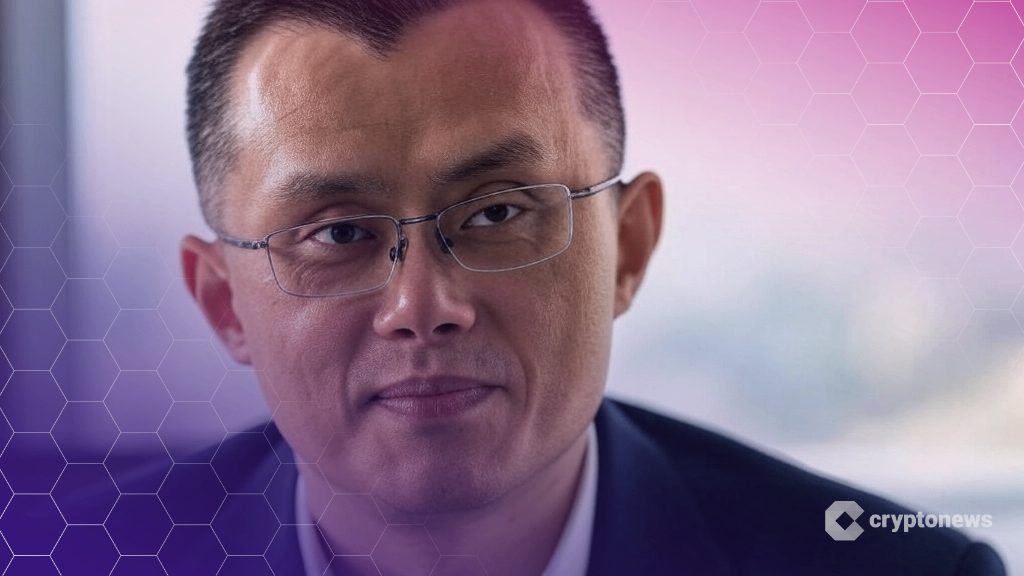‘Not Kidnapped, Lawfully Detained’: Nigerians Fire Back as CZ Reignites Binance Controversy

Share:
A diplomatic storm has erupted online after Binance founder Changpeng Zhao (CZ) accused Nigerian authorities of “kidnapping” former Binance executive and U.S. citizen Tigran Gambaryan, a claim that triggered fierce backlash from Nigerians defending their country’s legal sovereignty.
Zhao’s remarks, made in a now-deleted post on X, came shortly after U.S. President Donald Trump threatened possible military action against Nigeria over alleged religious persecution.
The timing of CZ’s statement linked two already volatile issues: U.S.-Nigeria tensions and Binance’s lingering legal disputes in the country.
What Really Happened in Abuja? The Question CZ’s Post Has Reignited
Trump declared on Truth Social that the U.S. might “go in guns-a-blazing” if Nigeria “continues to allow the killing of Christians.”
The situation escalated further when CZ referenced Binance’s past conflict with Nigeria, reigniting a year-old diplomatic and legal wound.
In his post, Zhao wrote, “Nigeria also basically kidnapped Tigran Gambaryan, an ex-Binance employee and an ex-US federal agent, for 8 months without cause a year ago.”

His claim reignited a year-old controversy surrounding the former Binance Head of Financial Crime Compliance and a former U.S. federal agent, Gambaryan’s arrest on February 26, 2024, when Nigerian authorities detained him and another Binance executive, Nadeem Anjarwalla, amid sweeping investigations into the exchange’s operations.
Authorities accused Binance of facilitating currency speculation, tax evasion, and money laundering.
Anjarwalla later escaped, while Gambaryan was charged with multiple counts of money laundering involving over $35 million, tax evasion, and operating without a license.
He was held at the Kuje Correctional Centre near Abuja for eight months, during which his health declined due to malaria, pneumonia, and a chronic back condition.
His bail requests were twice denied, with the court citing a potential flight risk following Anjarwalla’s escape.
In October 2024, the Economic and Financial Crimes Commission (EFCC) dropped all charges on humanitarian grounds, stating Gambaryan bore no personal responsibility for Binance’s alleged offenses.
He was released from custody and returned to the United States shortly after.
However, the EFCC continues to pursue cases against Binance for money laundering, tax evasion, and foreign exchange manipulation.
In February, the Federal Government of Nigeria filed a lawsuit against Binance demanding $81.5 billion in back taxes and economic damages.
Nigerians Push Back, Defend Legal Sovereignty
Zhao’s claim of “kidnapping” revived the issue, sparking anger among Nigerians who said the remarks were disrespectful and misleading.
One Nigerian user on X wrote, “Nigeria did not kidnap anyone.”
“Every sovereign nation has the right to enforce its laws and protect its economy.” Another added, “Just as the U.S. created Binance.US to comply with its own laws, Nigeria reserves the right to enforce compliance within its jurisdiction.”
Prominent Nigerian Web3 advocate Tola Joseph Fadugbagbe issued a public letter to Zhao, urging him to retract his statement. “Your choice of words was not only misleading but damaging,” Fadugbagbe said.
Some Nigerians accused CZ of double standards, pointing out that he himself was imprisoned in the United States after pleading guilty to anti-money-laundering violations.
“When America arrests someone, it’s called justice,” one user wrote. “But when an African country enforces its laws, it suddenly becomes ‘kidnapping’?”
Notably, under Nigerian law, individuals or entities operating financial platforms must be licensed by the Securities and Exchange Commission (SEC) and comply with anti-money-laundering regulations.
Violations are subject to criminal prosecution, fines, or asset forfeiture under the Money Laundering (Prevention and Prohibition) Act and the Capital Markets Law.
The post ‘Not Kidnapped, Lawfully Detained’: Nigerians Fire Back as CZ Reignites Binance Controversy appeared first on Cryptonews.
‘Not Kidnapped, Lawfully Detained’: Nigerians Fire Back as CZ Reignites Binance Controversy

Share:
A diplomatic storm has erupted online after Binance founder Changpeng Zhao (CZ) accused Nigerian authorities of “kidnapping” former Binance executive and U.S. citizen Tigran Gambaryan, a claim that triggered fierce backlash from Nigerians defending their country’s legal sovereignty.
Zhao’s remarks, made in a now-deleted post on X, came shortly after U.S. President Donald Trump threatened possible military action against Nigeria over alleged religious persecution.
The timing of CZ’s statement linked two already volatile issues: U.S.-Nigeria tensions and Binance’s lingering legal disputes in the country.
What Really Happened in Abuja? The Question CZ’s Post Has Reignited
Trump declared on Truth Social that the U.S. might “go in guns-a-blazing” if Nigeria “continues to allow the killing of Christians.”
The situation escalated further when CZ referenced Binance’s past conflict with Nigeria, reigniting a year-old diplomatic and legal wound.
In his post, Zhao wrote, “Nigeria also basically kidnapped Tigran Gambaryan, an ex-Binance employee and an ex-US federal agent, for 8 months without cause a year ago.”

His claim reignited a year-old controversy surrounding the former Binance Head of Financial Crime Compliance and a former U.S. federal agent, Gambaryan’s arrest on February 26, 2024, when Nigerian authorities detained him and another Binance executive, Nadeem Anjarwalla, amid sweeping investigations into the exchange’s operations.
Authorities accused Binance of facilitating currency speculation, tax evasion, and money laundering.
Anjarwalla later escaped, while Gambaryan was charged with multiple counts of money laundering involving over $35 million, tax evasion, and operating without a license.
He was held at the Kuje Correctional Centre near Abuja for eight months, during which his health declined due to malaria, pneumonia, and a chronic back condition.
His bail requests were twice denied, with the court citing a potential flight risk following Anjarwalla’s escape.
In October 2024, the Economic and Financial Crimes Commission (EFCC) dropped all charges on humanitarian grounds, stating Gambaryan bore no personal responsibility for Binance’s alleged offenses.
He was released from custody and returned to the United States shortly after.
However, the EFCC continues to pursue cases against Binance for money laundering, tax evasion, and foreign exchange manipulation.
In February, the Federal Government of Nigeria filed a lawsuit against Binance demanding $81.5 billion in back taxes and economic damages.
Nigerians Push Back, Defend Legal Sovereignty
Zhao’s claim of “kidnapping” revived the issue, sparking anger among Nigerians who said the remarks were disrespectful and misleading.
One Nigerian user on X wrote, “Nigeria did not kidnap anyone.”
“Every sovereign nation has the right to enforce its laws and protect its economy.” Another added, “Just as the U.S. created Binance.US to comply with its own laws, Nigeria reserves the right to enforce compliance within its jurisdiction.”
Prominent Nigerian Web3 advocate Tola Joseph Fadugbagbe issued a public letter to Zhao, urging him to retract his statement. “Your choice of words was not only misleading but damaging,” Fadugbagbe said.
Some Nigerians accused CZ of double standards, pointing out that he himself was imprisoned in the United States after pleading guilty to anti-money-laundering violations.
“When America arrests someone, it’s called justice,” one user wrote. “But when an African country enforces its laws, it suddenly becomes ‘kidnapping’?”
Notably, under Nigerian law, individuals or entities operating financial platforms must be licensed by the Securities and Exchange Commission (SEC) and comply with anti-money-laundering regulations.
Violations are subject to criminal prosecution, fines, or asset forfeiture under the Money Laundering (Prevention and Prohibition) Act and the Capital Markets Law.
The post ‘Not Kidnapped, Lawfully Detained’: Nigerians Fire Back as CZ Reignites Binance Controversy appeared first on Cryptonews.
 A Nigerian court has denied bail for
A Nigerian court has denied bail for  Nigeria escalates its crackdown on Binance, filing a lawsuit demanding $81.5B in back taxes and economic damages. The exchange now faces mounting legal challenges in the country.
Nigeria escalates its crackdown on Binance, filing a lawsuit demanding $81.5B in back taxes and economic damages. The exchange now faces mounting legal challenges in the country. 









